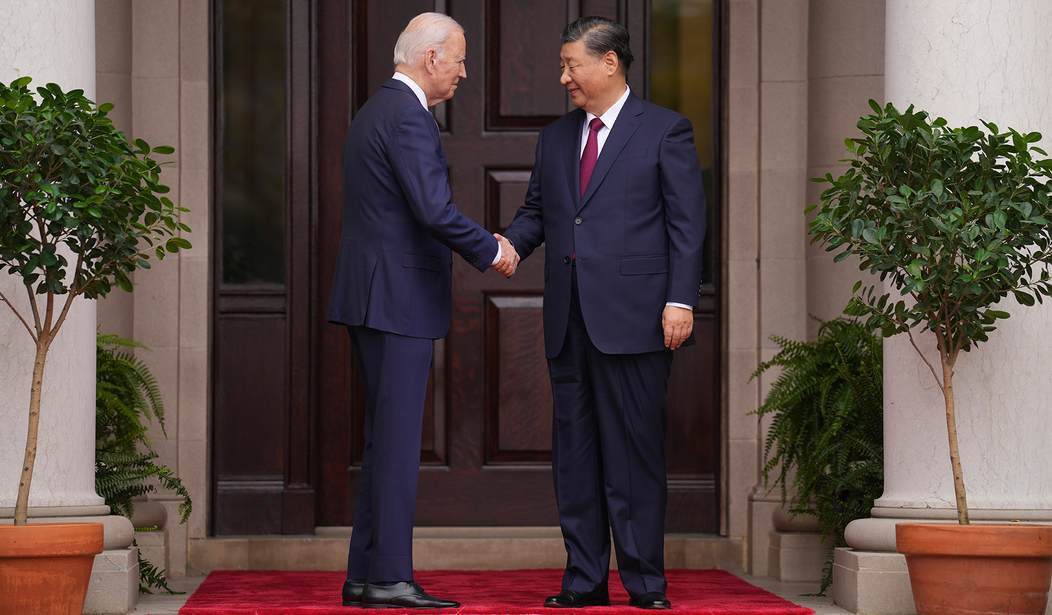Since President Joe Biden was inaugurated, the United States has imported more than $1.5 trillion in goods from the People's Republic of China, according to the Census Bureau's publicly released data for the period from February 2021 through March 2024.
At the same time, China has purchased only approximately $477 billion in exports from the United States.
Thus, during the Biden era, this country has run a trade deficit with China that exceeds $1 trillion.
This week, the Biden White House tried to present the president as a trade hawk who is going to fix this problem.
At the White House press briefing on Monday, a reporter asked National Security Adviser Jake Sullivan what the president was going to do about trade with China.
"What is the president's goal with his review of those tariffs?" the reporter asked. "And do you expect any retaliation from China if tariffs are, in fact, raised?"
"It's no secret that the president, this entire administration, has been concerned about unfair practices by the PRC that harm American workers and businesses, the issue of overcapacity, the ways in which China has put in place a series of nonmarket distorting practices and strategic sectors," said Sullivan. "And he has said consistently, 'I'm going to stand up and push back against that.'"
"That's the frame that he approaches this with," Sullivan said. "And then I'm going to leave the specifics to be announced in due course -- I would say in short order."
Recommended
The next morning, the White House announced a series of tariff increases aimed at a number of specific products imported from China.
These included increasing the tariffs on "certain steel and aluminum products" from 0%-7.5% to 25% this year; increasing the tariff on "semiconductors" from 25% to 50% by 2025; increasing the tariff on electric vehicles from 25% to 100% this year; increasing the tariff on solar cells from 25% to 50% this year; increasing the tariff on "ship-to-shore cranes" from 0% to 25% this year; and increasing the tariffs on "lithium-ion EV batteries" and "battery parts" from 7.5% to 25% this year and increasing them from 7.5% to 25% on "lithium-ion non-EV batteries" in 2026.
How will these increased tariffs impact U.S.-China trade? In its statement, the White House said they specifically apply to "$18 billion of imports from China."
In 2023, according to the Census Bureau, the United States imported a total of $427.229 billion in goods from China. So, if Biden imposed tariffs on $18 billion of those imports, he would be imposing tariffs on 4.2% of them.
Do any of the Chinese products Biden is preparing to hit with increased tariffs rank among the top U.S. imports from that country?
No.
The top U.S. import from China in 2023, as this column has noted before, was "cell phones and other household goods." Americans last year imported $67,190,448,361 of these, according to the Census Bureau.
The second-ranking U.S. import from China in 2023 was computers. Consumers in this country bought $37,443,858,398 of those.
The third-ranking import from China was "toys, games, and sporting goods." Americans bought $32,310,744,196 of those.
Did Biden announce tariff increases on any of these products? No.
The semiconductors that Biden is going to hit with increased tariffs ranked 31st among U.S. imports from the PRC in 2023. Americans spent $2,979,139,990 on them, according to the Census Bureau.
The "certain steel and aluminum products" Biden is going to hit with tariffs also did not rank high among U.S. imports from China. "Iron and steel, advanced" ranked 30th at $3,079,819,800. "Bauxite and aluminum" ranked 75th at $449,218,681.
What about electric vehicles? "Trucks, buses, and special purpose vehicles" ranked 57th among U.S. imports from China. Americans bought $1,003,994,549 of those. However, "[o]ther parts and accessories of vehicles" ranked seventh among U.S. imports from China. Americans purchased $14,593,390,664 of these.
In December 2021, when Congress was preparing to send Biden the Uyghur Forced Labor Prevention Act, which would ban imports made with forced labor in China's Xinjiang Province, White House press secretary Jen Psaki made clear that Biden agreed that genocide was taking place there. "We agree with Congress that action can and must be taken to hold the People's Republic of China accountable for genocide and human rights abuses and to address forced labor in Xinjiang," she said.
More than two years later -- and after the United States has imported more than $1.5 trillion in goods from this genocide-committing regime during Biden's time in office -- Biden is imposing targeted tariffs that the White House says will impact only $18 billion (or about 4.2%) of imports from China.
If Biden were serious, he would impose increased tariffs on 100% of imports from China.
























Join the conversation as a VIP Member